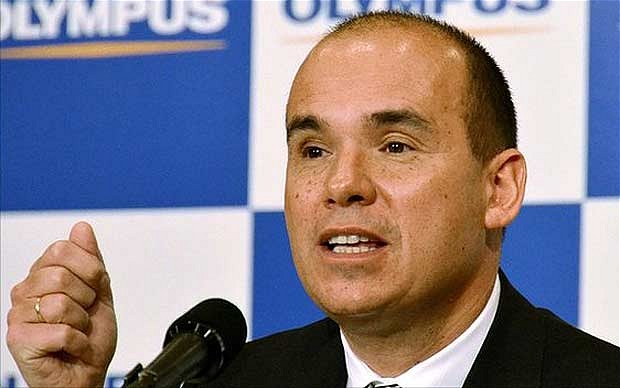
Japan’s beleaguered Olympus Corporation has restated its financial results for the last five years along with the six months leading up to September 2011 in a last-minute bid to retain its listing on the Tokyo Stock Exchange. The company withdrew its annual earnings guidance and says there will be no stock dividend for the first half of its fiscal year, but the overall damage from over a decade of cooked books doesn’t seem to be as bad as many industry-watchers feared. Overall, Olympus claims its financial position at the end of March 2010 was ¥54 billion less than it had previously claimed—a total of about $694 million. That money represents a significant portion of the company’s assets, but—if accurate—shows the company did not come close to having its actual liabilities exceed its assets.
[Update: restated figures running through the end of June 2011 show an ¥84 billion reduction in net assets, raising the total value lost in the restatement to just over US$1 billion. The restatement indicates that as of the end of September the company’s net assets totalled ¥46 billion, or about US$590 billion.]
Olympus faced automatic delisting from the Tokyo Stock Exchange if it did not release its second quarter earnings by the end of the day. The restated financials come with qualified opinions from the company’s auditors, who have not yet been able to backtrack all the Olympus’s hidden financial dealings, but have provisionally signed off on the restatements.
Meeting the deadline to restate their financials doesn’t get Olympus off the hook for delisting: the exchange could still decide to delist the company, depending on the scope and significance of the misreporting. Initial industry response is that Olympus’s financials aren’t so badly impacted by the restatement to warrant delisting—even in its battered state, the company is worth about seven times the nearly $700 million that vanishes with the restatements. However, even if Olympus remains listed it will likely take years for the company to recover its reputation and investor confidence.
Olympus’s precipitous fall from grace was triggered in October by its first non-Japanese CEO Michael Woodford, who questioned extraordinarily large payments made to a company in the Cayman Islands regarding the acquisition of UK medical equipment manufacturer Gyrus. Olympus’s board summarily dismissed Woodford, but Woodford went public with his accusations, triggering an investigation that revealed decades of shady financial dealings and bookkeeping designed to hide losses and obscure the company’s true financial situation. A third party investigating committee’s report last week described many members of Olympus’s board and executive leadership as “rotten to the core,” but—so far—hasn’t found any ties to Japanese organized crime.
Olympus’s existing board of directors has offered to resign over the scandal, but only on the condition that they can name their own successors. Ousted CEO Michael Woodford is back in Japan rallying support to see himself re-instated as the company’s CEO, backed by a new slate of directors.
Olympus is the dominant player in the medical endoscope business—accounting for about 75 percent of the world market—and also operates a well-regarded consumer and professional camera business. Some industry watchers have speculated Olympus would be forced to sell off its camera business to make up for financial losses from the scandal. Woodford has indicated that if he were restored to the CEO position, he he has no interest in breaking up Olympus or divesting the camera business.


